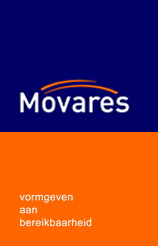Credits
A list of persons that contributed to SCC can be found here.
To promote SCC, we can use testimonials!
Can you state what you think of SCC and in what way it helps you in your work and on how many systems you deploy SCC.
References
Up till now, we know that SCC is used on thousands of systems.
We received the following statements:
-
Nelson S Soto
Banco de Oro uses SCC to collect the configuration of its Unix and Linux servers.
It has really helped us a lot in determining changes on the systems.
-
Hendrik Visage
While contracting to several companies, I've had the following cases where SCC helped save the day (or lessen the impact ;)
During a system upgrade, we did a fresh install of the operating system disks, saving the usual /etc/passwd, /tcb/ etc. but forgot the /etc/oratab.
After we've booted and mounted the database storage and filesystems, the database couldn't start.
Luckily the DBA noticed the missing /etc/oratab, and I immediately recovered it from the SCC repository
Got a call from a application user that mistakenly did a "crontab -r" instead of "crontab -e".
I grabbed the SCC copy, and installed that (though it was not the nicely commented version) to get the crontab back and them running again,
while we waited for the backup system to find the tapes needed for a proper restoration of the commented version.
Another company, the Solaris ifconfig (with the MAC address information) have helped to get a downed systems booted via the right interface over the network,
instead of trial and error over the 4 available interfaces.
-
famouswhy.com

scc-win has been granted the "Editor's Pick Award" by FamousWhy.com.
-
Alexander Fuchs - ABB AG
Congratulations for the developing of SCC. The best and smartest thing in config mgmt I've ever seen in the Unix world.
We use SCC to be SOX compliant.
SOX compliancy requires the prove that no changes have been done without the appropriate process (Request for Change) and approvals.
The only way to do this is to do an automatic recording of changes of the most important objects on an IT system.
That's exactly what can be done easy with SCC.
-
Wayne Holmes - Arinc
I would like to add that this is one of the best pieces of configuration software we have used.
We are currently replacing config2html with SCC across a variety of platforms.
-
Mattijs de Ruijter - T Systems NL

T-Systems is using SCC to track changes on several of its UNIX servers.
At the moment that is about 100 servers in all flavours: Solaris, HP-UX, Tru64 and AIX.
The reason we choose SCC was mainly because we preferred its secure way of fetching the data
and its ease to use web interface in combination with the standard way of approaching several
kinds of operating systems.
From the very first day we started using this tool, it turned out to be very valuable.
Especially the log function of changes is of great use when solving incidents.
-
Harry van Wiggen - Movares

After using cfg2html for a while, we have started testing with scc on a few boxes.
The main reason for choosing scc was the (extra) logbook facility.
During this period we discovered that scc also detected some rare situations on a box; like broken mount points or strange filenames in a directory.
Today, we are running scc client in different flavors HPux, SUN and Linux without any problems.
The shell script design makes it even easy to debug, whenever a problem occurs.
We have also added a user_module which is collecting some specific information.
The centralized information is also used for signalling (software) changes and provides audit options.
-
Joachim Muench
First of all I want to say THANK YOU for this really great software tool.
This is exactly the kind of software I like.
Small, easy to install and easy to deploy and it does exactly what you want and what you need. :-)
I am using this software for the automated documentation of systems and configuration changes.
We use this software for about 20 Linux and Windows-Servers.
-
Peyton Lassiter
I would like to commend you for developing such a useful tool. SCC fills a tremendous void in the typical IT environment.
-
Doug Probst
We are using SCC on about 86 AIX boxes with OS levels ranging from 4.3.3 to 5.3.
The main reason we implemented this software was to satisfy an audit finding.
We had no way to track configuration changes. I did a bit of working getting SCC to function on AIX
out of the box, and in the secure manner that fits our security model.
I have used it a few times and actually nailed a problem without knowing anything about it.
A member of our web team called me about an apache problem. This problem had manifested itself
after a server bounce. I check the change log for that box and low and behold, someone had made
changes to httpd.conf and done so incorrectly.
Problem solved, 5 minute phone call.
Once installed, this software is out of sight and mind until you need it.
-
Stieven Struyf system engineer - Komatsu Europe international
This is my personal statement about our use as scc (which i implemented and proposed).
When we were looking for a tool to collect the configuration data for our
systems we tried SCC. These systems include a mixture of windows servers,
several linux flavors (redhat/debian versions) and solaris platforms. SCC
proved that it could provide us with a uniform report for all our servers,
with the nice feature to log the differences since the last collection
cycle. The data collected by SCC is used as a reference, but also to meet
regulatory compliance.
-
Richard Hicks
The most recent use was at a customer of mine in a Solaris cluster,
where the vfstab files had got out of sync as new disks were added. When
the 1st node failed, the 2nd node did not have all the file systems
configured. SCC had the information for the 1st node and this was used
to configure the 2nd node.
Contributors
In alphabetical order:
-
Alexander Fuchs and Gerhard Koller
contributed the SAP/R3 module.
-
Bram Lous
implemented the first version of the web-interface.
-
Doug Probst
contributed several changes for AIX.
-
Eduardo Alvarenga
produced the AIX packages and the HP-UX depots for scc and scc-srv.
-
Erik-Jan Taal
contributed several enhancements, reported bugs and suggested improvements.
-
Harry van Wiggen
thoroughly tested scc and scc-srv and contributed several enhancements.
-
Hendrik Visage
contributed several suggestions and bug reports
-
IBM Innovation Centre Amsterdam
provided access and support to test and expand SCC for AIX.
-
Leif Sjölund
provides an online scc-srv
-
Marco van de Kolk
suggested the architecture of the Windows version of SCC.
-
Nico van Royen
developed the first version of packaging for BSD-systems.
-
Oscar Meijer
developed the first version of the Windows client.
-
Paul te Vaanholt
implemented the HP OpenView and Oracle modules and suggested many other improvements.
-
Romildo Wildgrube / John Dworske
assisted in developing/debugging of scc client on FreeBSD.
-
Ronald ten Broeke
assisted in developing/debugging of scc client on TRU64.
-
Siem Korteweg
main developer of the Unix/Linux/*BSD client and server.
|

